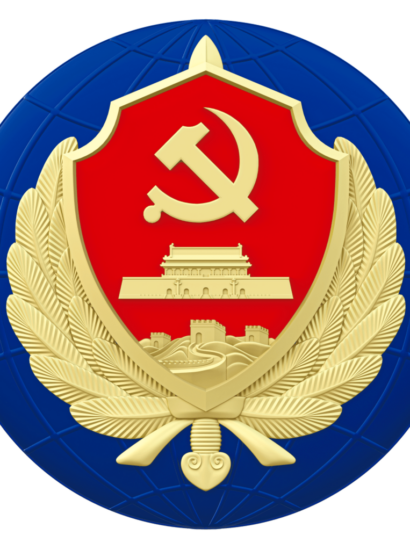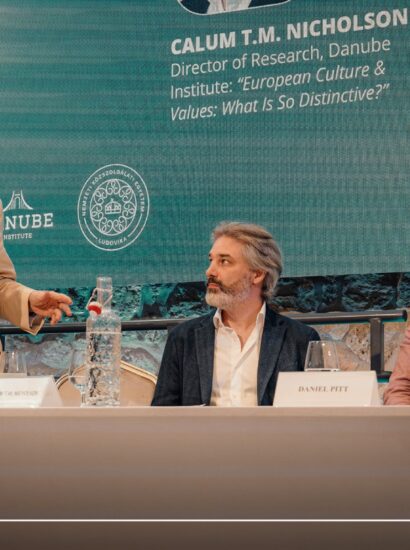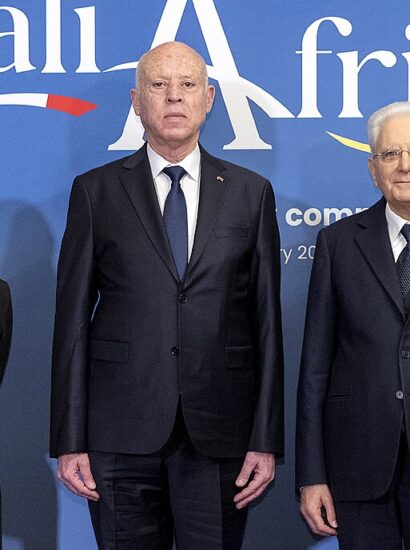In the early October German state elections, the far-right Alternative for Germany (AfD) made significant gains outside its traditional stronghold, Eastern Germany. In both Hesse and Bavaria, the radical AfD improved on its previous results but fell short of its nationwide support, which stands at about 20 percent of the vote. Meanwhile, traditional parties are struggling to gain support or reach out to new voters.
Far Right Proved More Popular Than The Federal Incumbents
AfD overtook all three coalition parties in the federal government in the two elections and they are becoming a serious contender in the western states.
The members of the so-called “traffic light coalition” — the Social Democrats (SPD), the Greens and the Liberals (FDP)— all suffered a drop in support. That outcome demonstrated widespread dissatisfaction with the federal government at a time of growing economic and social insecurity.
The German economy has been stuck for a while, precipitated in part by the surge in energy prices that followed Russia’s invasion of Ukraine.
A sharp rise in the number of asylum seekers entering Germany this year and a growing shortage of affordable housing has also fueled voter dissatisfaction.
Moreover, AfD is more effective at online campaigning than the technologically less advanced old major parties and at “influencing the political agenda” or constant provocations and scandalizing methods.
Traditional Conservatives: Melting Primacy
Conservative forces won clear victories in both the states of Bavaria and Hesse. In Bavaria, the Christian Social Union (CSU), a sister-party to the center-right Christian Democratic Union (CDU), won 37 percent of the vote. In Hesse, the CDU gardened 34.6 percent of the vote.
Boris Rhein, the CDU prime minister of Hesse, is explicitly seen as an internal rival of party president Friedrich Merz, and will be a strong challenger in light of the CDU’s popularity in Hesse, which exceeds the CDU’s national popularity.
One of the key differences between the two is that Merz would take the party to the right towards the AfD, while Rhein is on the old centrist-mercantilist line.
Traffic Light Coalition: Bashed From All Sides
Robert Lambrou, the AfD’s parliamentary group leader in Hesse, where the party was projected to win 18.4 percent of the vote, called the party’s performance in the state “breathtaking.” Many people, he added, “feel that a change in policy is needed. We have high inflation, high energy prices, high rents. We have completely unchecked mass immigration. There is a lot to be done here.”
Markus Söder, leader of CSU, the winner of the Bavarian state elections had sharply criticized Olaf Scholz’s three-party federal coalition on migration.
“This government is probably the worst government Germany has ever had,” Söder declared, while saying the situation “can’t stay the way it is now.” Söder was reelected as the head of his conservative CSU party shortly before a critical Bavarian state vote. Now he will start his second term in a row. The 37 percent winning is one thing, but the CSU must rely on Freie Waehler, the Free Voters Party (FW) which is likely to be its coalition partner, again after the 2018 election.
Another federal governing party, the Free Democrats (FDP) have been eliminated from the Bavarian parliament this time, and the SPD has also achieved its weakest result ever.
Voller Saal und fantastische Stimmung bei der CSU-Abschlusskundgebung in München. Gemeinsam mit @HendrikWuest haben wir noch einmal deutlich gemacht: Die Landtags- und Bezirkstagswahl am kommenden Sonntag ist eine extrem wichtige Weichenstellung. Es ist keine Zeit für… pic.twitter.com/Fm1th2BbXb
— Markus Söder (@Markus_Soeder) October 6, 2023
Free Voters: Increasingly Not Free Riders
It’s time to learn the name of this relatively new German party, the Free Voters, an increasingly successful right-wing formation ideologically situated between the AfD and CDU. The party has around 4 500 members. It exists in Bavaria and neighboring Baden-Wurttemberg, but is represented in Bavaria’s state parliament only. Hubert Aiwanger is the leader of the Free Voters. He is also a town councilor, chairman of his party — as well as their Bavarian state chairman and head of the state parliamentary group. In short, he is the heart and brain of the party. The Free Voters are considered conservative, as is the CSU. But they are not as radical as the AfD. The party is better known for its strong local focus in South Germany. They want to preserve customs, promote dialects and call for more local history classes in schools. In their refugee policy – similar to CSU – they want strict border controls, less family reunification, more consistent deportations and faster asylum procedures.
In various German surveys, it has been shown time and again that the number of people who accept far-right theses is increasing among those who consider themselves politically in the center. If we look at the AfD’s support figures, almost a third of German society is open to such ideas. According to FES research, six percent want the Führer back, 34 percent think migrants only come to exploit the welfare system, and 16 percent are xenophobic. Compared to similar figures in the Visegrad countries, these are not bad numbers, but they are not encouraging for Germany.
It remains to be seen to what extent the AfD’s rise will be sustainable, and whether the support for the party will continue until the next federal election or return to previous levels as the economic situation improves and/or dissatisfaction with the government declines. It will also be important to see whether the German political center will unite against the AfD, as it has done in the past.








[…] we wrote earlier, the AfD strongly holds the second place in regional elections and has made significant […]